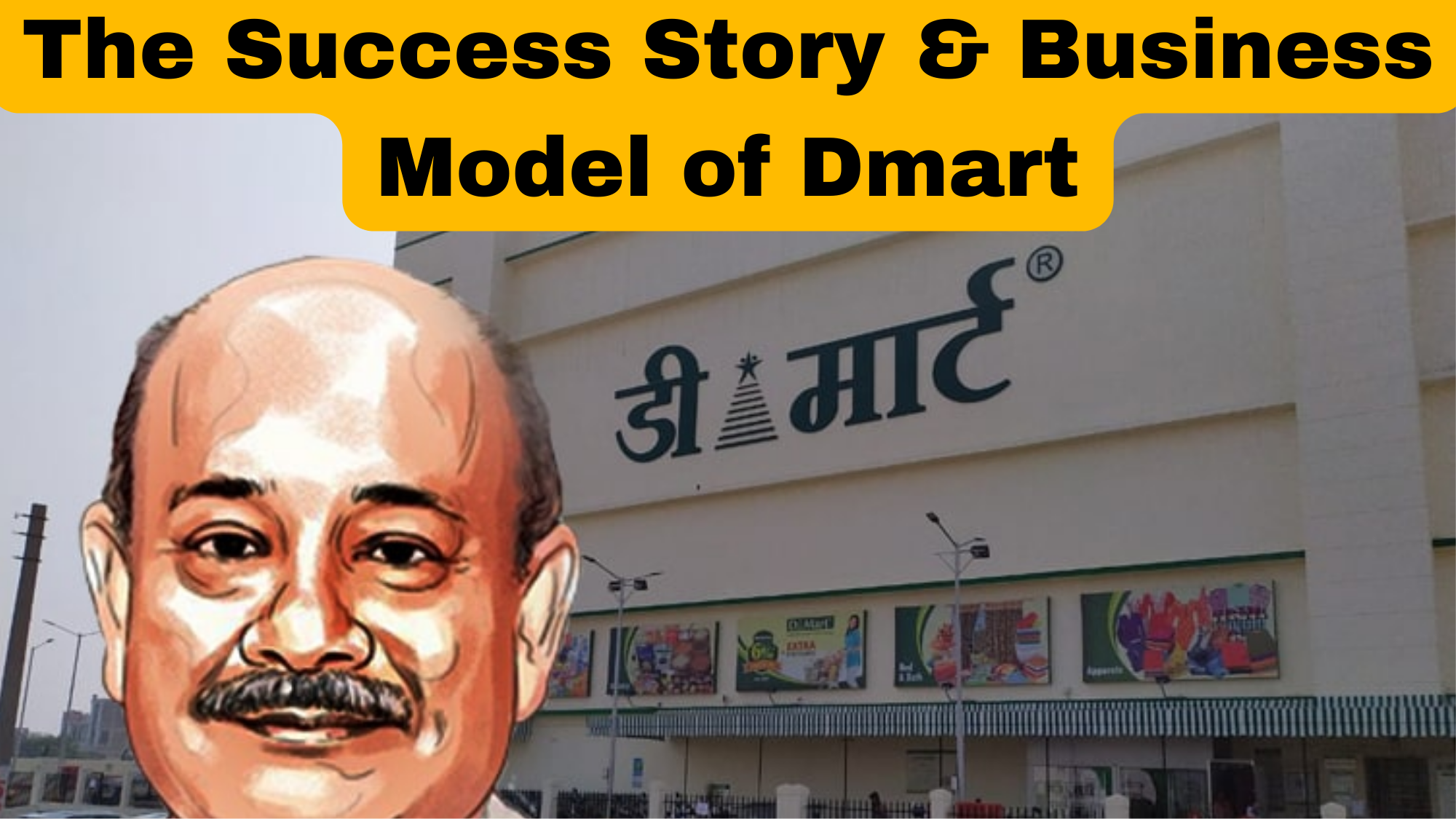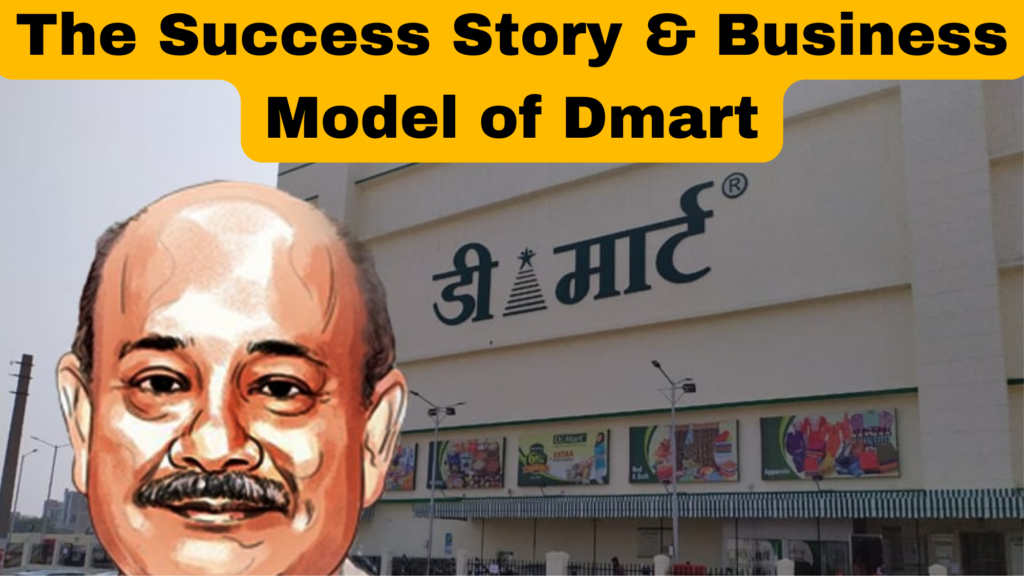

The Success Story & Business Model of Dmart: A Unique Approach to Retail
Mr. Radha Kishan Damani, an Indian billionaire businessman and investor, founded DMart, which opened its first store in Powai, Mumbai in 2002. The company has since expanded to operate over 345 stores across India.

In the competitive world of retail, Dmart has carved out a unique niche for itself by following a distinctive strategy that sets it apart from its competitors. Let’s delve into the secrets behind Dmart’s success and how they have managed to thrive in the retail industry.
1: Property Ownership – Dmart’s strategic decision to own properties instead of renting has been a game-changer. By strategically locating their stores in non-prime areas, they have effectively kept their initial investment low and avoided the unpredictability of rental spikes in the future. This forward-thinking approach has become one of their biggest success mantras.
Please also read; Tata Giga Factory in Gujarat to setup ₹13,000 crore lithium (investonomic.co.in)
2: Volume-Based Strategy – Dmart’s approach to selling fast-moving consumer goods (FMCG) products at heavily discounted prices has been instrumental in maintaining high sales volume throughout the year. This volume-based strategy not only keeps their cash registers ringing but also allows them to enjoy better margins.
3: Cost-Controlled Store Design – Unlike their counterparts, Dmart’s stores are not adorned with high-end interiors. This deliberate choice enables them to keep their expenses under control and reduce overall costs, ultimately translating into more competitive pricing for their customers.
4: Aggressive Vendor Negotiations – Dmart’s prowess in negotiating aggressively with vendors, coupled with their prompt payment policy of settling bills within two weeks, sets them apart from competitors who typically stretch payment terms to 20 or 30 days. This approach has strengthened their vendor relationships and secured favorable terms.

5: Slow Expansion for Sustainability – While some retailers rush into rapid expansion, Dmart has taken a more measured approach. Their slow and steady expansion strategy has allowed them to become self-sustained and less reliant on debt, positioning them for long-term success.
Also read; राष्ट्रीय पेंशन योजना (एन पी एस); लाभ और महत्व (investonomic.co.in)
6: Competitive Pricing for Non-Branded Products – Dmart’s astute understanding of their target customers has led them to keep prices on non-branded products such as bed sheets, towels, and garments exceptionally low. This deliberate pricing strategy has effectively attracted a large customer base, generating substantial volume for these products.
In conclusion, The Success Story & Business Model of Dmart can be attributed to its innovative and unconventional approach to retail. By focusing on property ownership, volume-based strategy, cost control, aggressive vendor negotiations, sustainable expansion, and competitive pricing, Dmart has established itself as a formidable player in the retail industry. As they continue to uphold these principles, Dmart is poised for sustained success and growth in the years to come.



